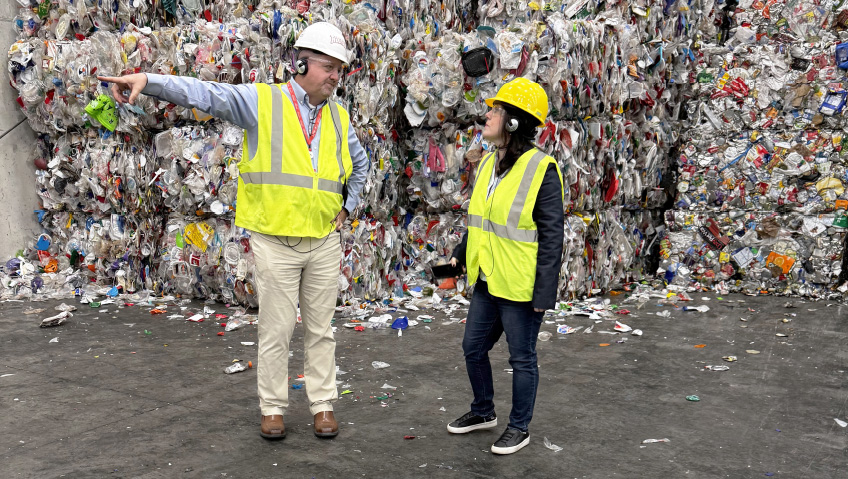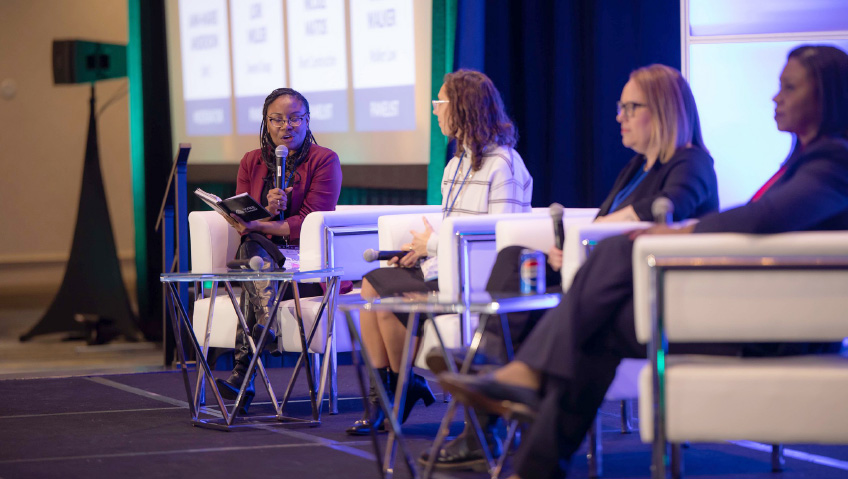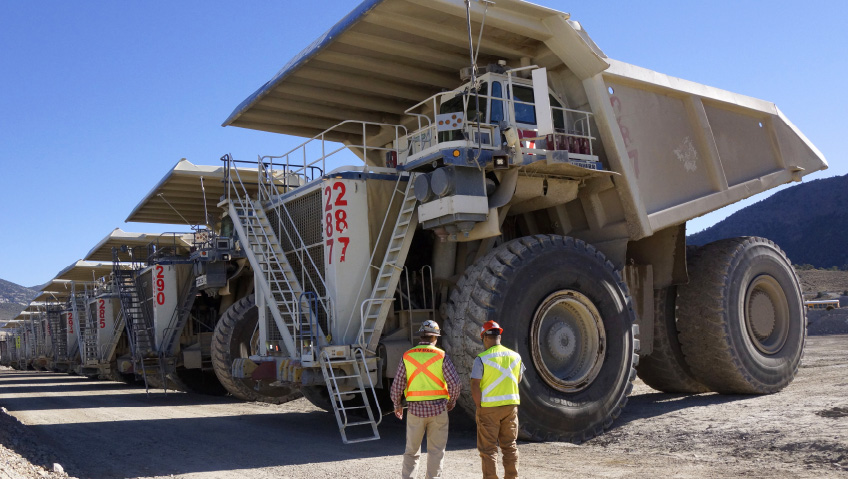From safety and technology to education and innovation, SWANA (the Solid Waste Association of North America) promotes and represents waste and resource management professionals while highlighting the significant contributions the sector makes to both the economy and society as a whole. With 47 chapters in the United States, Canada, the Caribbean, and the Pacific Basin, SWANA members act as environmental and public health stewards in both the public and commercial sectors, as well as for non-profit institutions and organizations. Members can keep tabs on trending subjects, network with professionals, and influence the direction of solid waste management through seven technical divisions.
In order to develop a highly trained workforce, SWANA offers a wide range of technical training courses and credentials, publishing and research, and technical education to industry experts. By bringing together members to discuss important topics, exchange knowledge, and strengthen industrial ties in all facets of integrated waste and resource management, the organization strengthens the waste and resource management sector.
“Safety is our top focus across the board,” says CEO Amy Lestition Burke, MA, FASAE, CAE. “We want to make sure people come home at the end of the night to their families.”
This means a constant search for new and improved technology to help achieve this goal. “There are trucks and heavy equipment in every part of our industry, and technology advancements are really important. It’s also important to keep pushing the industry in terms of finding solutions to challenges,” says Lestition Burke.
Technology helps with this, she says, because it can make the industry safer and has already done so in many areas, with cameras, sensors, and advancements in equipment used at facilities. “That’s really important as we look ahead to protect workers and those safeguards. It’s not only thinking of protecting our workers and our team on a day-to-day basis but also the public coming into our space: what’s the best way for them to drive throughout our recycling center, and if they are getting out of their vehicle, what’s the safest solution?”
Unfortunately, most fatalities within the industry occur on collection routes when a vehicle is speeding around one of the collection trucks and fails to see the worker. In August 2025, OSHA (the Occupational Safety and Health Administration), the National Waste and Recycling Association, and SWANA committed to working together to create greater safety resources and disseminate information to ensure the public slows down around vehicles to help avoid potentially fatal interactions.
That’s another area where technology can help, Lestition Burke says. “The more we can modernize the trucks, the more we can keep people safe,” she says. “At SWANA, we make sure we’re providing ongoing safety—and we do that in a variety of ways, but one way is through Safety First, a weekly newsletter we put out.”
One recent major concern is the advent of lithium-ion batteries and their direct impact on causing fires, whether at landfills, MRFs (materials recovery facilities), recycling centers, or in the trucks themselves. “We’ve done a lot around that issue with trying to get more technology to protect and detect batteries. We also need more technology to put out the fires,” says Lestition Burke.
This calls for workforce training and a lithium-ion battery working group with several subgroups. “We’ve been working with other like-minded groups, including fire chiefs, to cooperate and learn from each other, because that’s the only way we can solve it,” she says. “We can’t work in a silo. It’s not just our industry; it’s broader than that, and that’s how we’ll make a difference, by bridging gaps and finding synergies together.”
Another SWANA focus is addressing the full lifecycle of products and packaging within the industry, something Lestition Burke has focused on since coming to SWANA, building on her previous role at the Consumer Brands Association representing Grocery Manufacturers, where she learned about packaging sustainability.
“We’re also talking about PFAS (per- and polyfluoroalkyl substances) and EPR (extended producer responsibility),” she explains. “All of those issues I had knowledge of from the manufacturing side, and I was able to bring that into SWANA when I became CEO, which was really exciting. This has been a way for SWANA to initiate conversations with brands and have a more open dialogue about the design of plastics and the products we can support the design of for recycling, composting, and reuse.”
From the products’ beginning of life to their end-of-life use, SWANA and the industry can more effectively manage recycling when working together. “We’ve had some fantastic conversations with brands about how we can work and bring that together.”
Lestition Burke is also excited about the U.S. Plastics Pact, which will host its in-person Activator Action Summit event as part of SWANA’s RCon conference in November, bringing brand owners and packaging designers together in the same room as the municipalities and companies running the recycling programs. “We’re looking to this to start driving things forward with greater collaboration, versus working separately.”
Unfortunately, SWANA is disappointed that an agreement was not reached with the UN negotiations on the International Plastics Treaty. While the last run of negotiations was slated to take place in Geneva at INC-5.2, they did not reach a conclusion. “The positive is that a lot of conversations did happen around INC-5.2 and brought stakeholders together proactively to try to find solutions.” SWANA hosted a roundtable in Washington, DC before INC-5.2 to bring key stakeholders together; people left wanting more of that conversation, something SWANA is committed to continuing.
“Our industry is a huge solution to ending plastic pollution, and we need to play a larger role,” Lestition Burke says. “If you’re going to end pollution, you need our industry to be part of that.”
But what exactly does that look like? Plenty of answers can be found at SWANA’s upcoming RCon, a brand-new conference taking place November 12th to 15th in Columbus, Ohio. “We’re really embracing SWANA’s mission, which is to advance waste to a resource,” Lestition Burke says. “The R primarily stands for resource, so that can mean recycling, reuse, or repair,” she explains.
“The waste and recycling industry and resource management industry really are essential workers,” she continues. “If we were not moving forward in terms of the work we do, it would be of grave concern to the public. I love the conference; it’s brand new, so everyone’s a first-timer,” and it’s also a bit of a “build your own adventure. There are lots of options for how someone can craft their day.”
These options include technical deep dives, leadership sessions, and SWANA training courses that will focus specifically on PFAS, how to manage a landfill, and dealing with landfill gases with some exciting new technology.
“We heard from members that they want to sit down and have a peer-to-peer exchange with different people, hear their challenges and solutions, and hear what they’re doing,” says Lestition Burke. “We have lots of roundtables set up, we’re doing facility tours throughout the entire conference, and if you don’t want to sit in the convention center in a concurrent session, you can tour a landfill, an MRF, or a PFAS treatment plant. We also have a sustainability tour of the zoo and the Ohio State University stadium.”
There’s even a behind-the-scenes tour of the greater Columbus Convention Center, which offers “outstanding” sustainability efforts. “We’re also looking at unexpected, thoughtful experiences for attendees. I’m calling them ‘surprise and delights,’ so we can create some memorable, positive, long-lasting impressions for attendees.”
Billed as “more than an event,” RCon is an experience like no other, she says. The Expo Hall has been expanded due to demand, displaying solutions for everything from the different technology on trucks to PFAS to advancements in bio-solids. A wide range of companies will be showcasing solutions for municipalities.
“I’ve been to a lot of conferences, and I just want people to learn a lot but to have fun along the way; you can have both. We do need to sit and digest the information, but then we can have a really fun break. We can have a dynamic general session speaker and have information presented in a unique way. All of that can be combined, and that’s what the team at SWANA is working hard each day to deliver on.”
When SWANA made the decision to sunset its two previous events and move to RCon, it knew it had to differentiate the conference not only from what was done in the past but from others in the market. “We want attendees to keep coming back year after year, and it’s going to be different each time,” with facility tours, museums, technical content that will mirror current trends, and practical information the industry needs.
SWANA has also been working to update its educational offerings with trainings and courses, meaning that certification is available in specific areas such as landfills, recycling, landfill gas, or PFAS. “As a membership organization, SWANA is also working on bringing to life the community and recognizing volunteers, members, and the people,” Lestition Burke says. “We wouldn’t be here if we didn’t have the people and what they do.”
This means a focus on highlighting their stories and accomplishments. “We’re thinking about that long-term—getting more people into our profession and our industry. If we can get more stories and people out there, I think that will really drive the difference going forward.”






